Bath vs. shower: which is best?
20th Oct 2023
Which is best, baths or showers? The debate battles on as it has done for centuries, but there are clear qualities to both. Discover the pros and cons of baths vs. Showers.
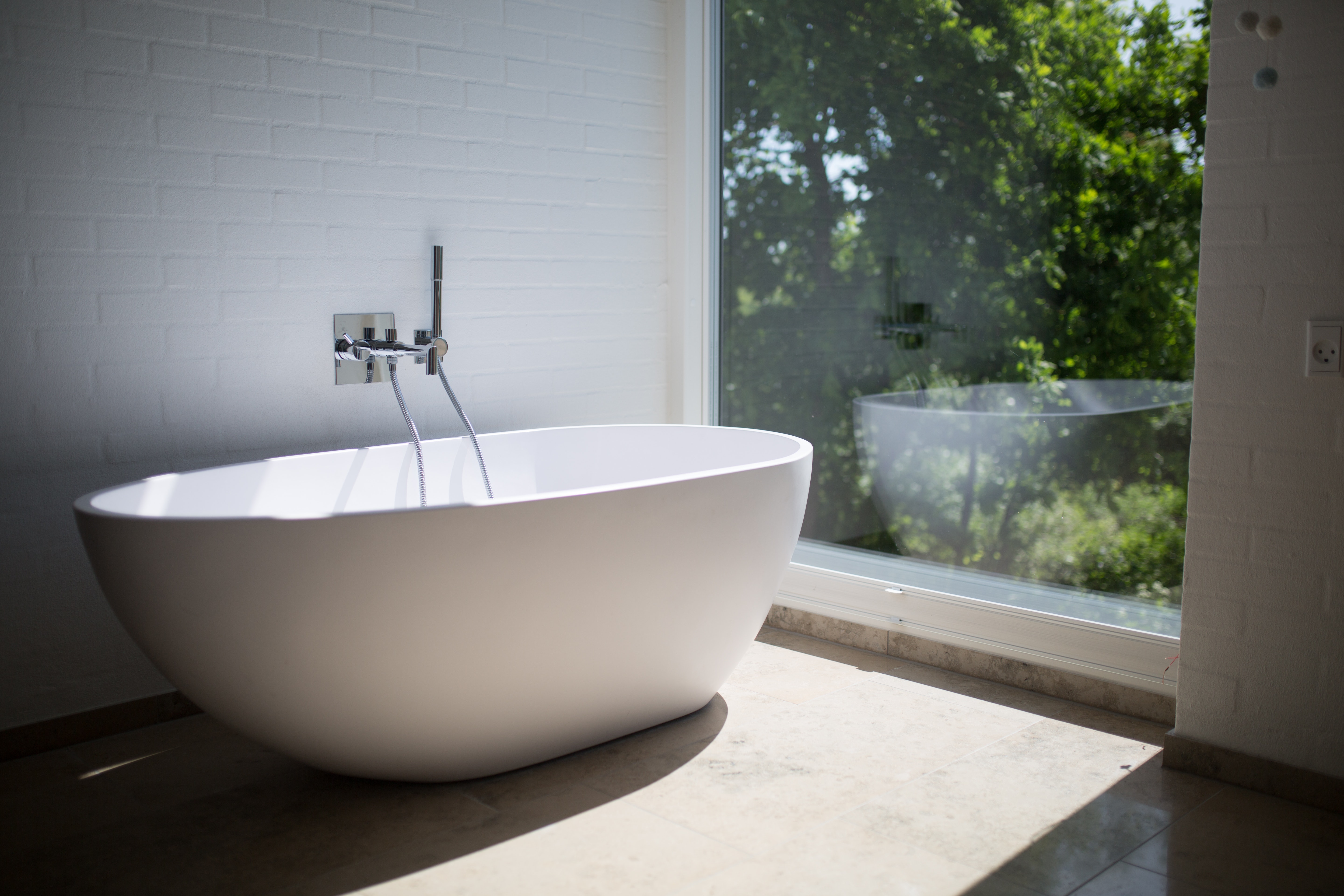
In the timeless debate of baths versus showers, let's first consider their historical origins. Baths, with a history dating back thousands of years to the advanced civilization of the Indus Valley (around 3,300 BCE), have been a symbol of hygiene and health. The ancient Indus Valley had baths and drainage systems, likely for purposes similar to our modern use.
On the other hand, showers, while not as ancient as baths, still precede the 20th century. The earliest showers involved washing in lakes and rivers, evolving into the practice of pouring water over someone using a large jug. The showers we are familiar with today, however, can be traced back to 1767 when William Feetham patented a design in London. It wasn't until indoor plumbing re-emerged in the 1850s that showers began to rival baths as a popular choice for personal hygiene.
Advantages and disadvantages
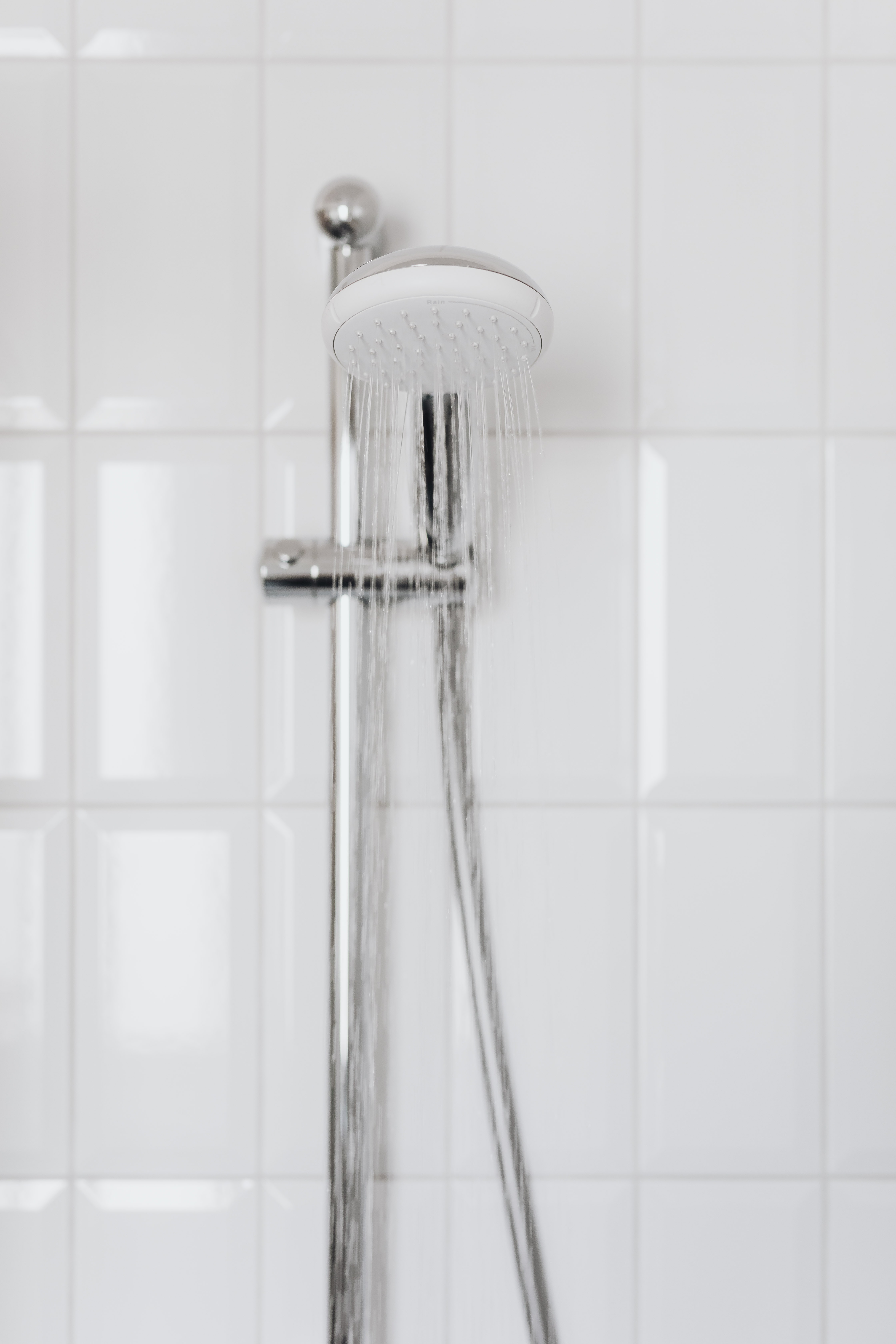
Most homes have a bathroom with a shower and a bath, and they tend to use the facilities interchangeably according to the needs of the home. Naturally, baths and showers have pros and cons, but it’s good to be aware of them when organising your lifestyle. In the following tables we give you a blow-by-blow account of the pros and cons of taking a shower vs. taking a bath.
How baths weigh in
Pros of taking a bath:
- Blissful Relaxation: A warm bath after a stressful day is incredibly relaxing.
- Sleep Aid: A warm bath can aid sleep by adjusting body temperature.
- Circulation Boost: A warm bath supports better blood circulation, relieving aches.
- Heart Health: Improved circulation from baths can support heart health.
- Nasal Relief: Warm baths can alleviate nasal blockages and promote overall health.
Cons of taking a bath:
- Dry Skin: Extended bath time can dry out the skin, making it appear crepey.
- Resource Intensive: Baths use more water and energy than showers when used regularly.
- Time-Consuming: Preparing a bath takes more time than a shower, making showers more practical for quick use.
- Not Suitable for Dirt: Baths are not the best choice when you're dirty or sweaty after exercise.
The power of showers
Pros of taking a shower:
- Time Efficiency: Showers are quick and convenient when time is limited.
- Water Conservation: Showers use only half as much water as baths.
- Energy Savings: Using less water in showers makes them an economical choice.
- Mobility Support: Showers are a better option for individuals with mobility issues.
- Space Efficiency: Installing a shower enclosure requires less space than installing a bath.
Cons of taking a shower:
- Maintenance: Shower doors and curtains require regular cleaning to maintain bathroom hygiene.
- Child Bathing: Baths are better for bathing small children.
- Shower Head Replacement: Shower heads may need periodic replacement.
- Relaxation Level: Standing in the shower is less relaxing than soaking in a bath after a long day.
- Moisture Issues: Showers can generate mist that may lead to mould, mildew, and moisture damage in the bathroom.
When a bath is best
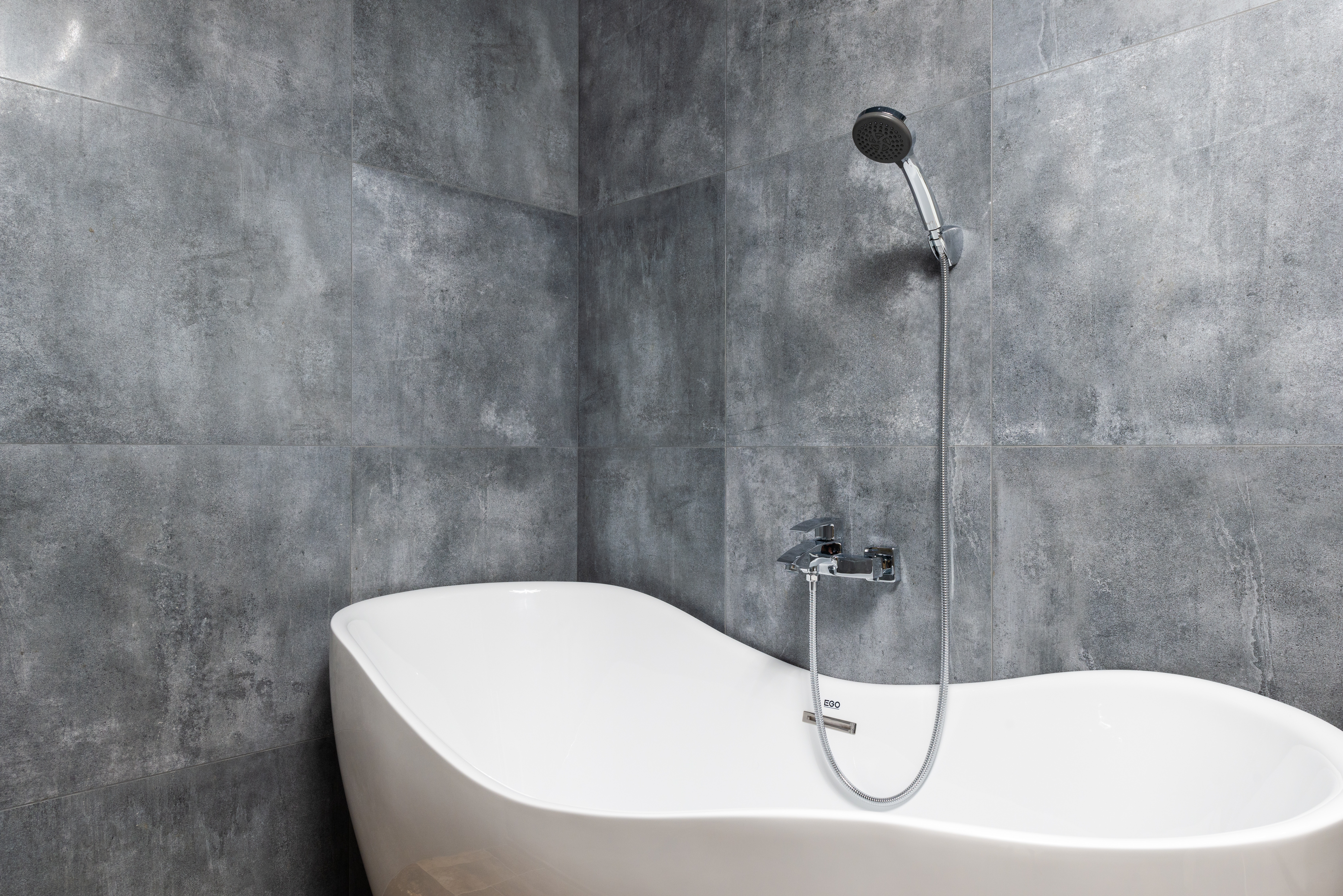
1. When you have life stresses
We all know the pleasure of sinking into a warm bath and watching the stress of our busy lives fade into the steam, but we might not understand exactly why this happens. Whether our minds are occupied by work stress, health stress, or relationship stress, bathing is a context for relaxation.
The parasympathetic nervous system is a complex network of nerves in the body that regulates many unconscious processes, including our fight-or-flight responses, which are constantly active during the day. As this system adjusts to the warm bathwater, the body and mind relax, alleviating stresses.
2. When you need to sleep better
No matter what path in life you follow, success is unlikely without sufficient, quality sleep. Sleep is sometimes taken for granted, but we all know the effects of waking up too early or being unable to get some shut eye through the night. This can lead to tiredness at best and even depression.
It might sound counterintuitive, but a lower core temperature helps us sleep better. That's because the body can use the energy it saves for restorative processes. If you struggle to sleep at night, take a warm bath 90 minutes before bed. This recirculates blood in the body, lowering body temperature.
3. When you have physical aches
If you're an active person, you're probably familiar with the conventional wisdom of taking a bath after exercise to alleviate muscle stress. But a warm bath can also help with joint pain, like arthritis, in a way a shower cannot. Soaking the body in warm water supports blood circulation and recovery.
The good news is that no special equipment or salts are needed to improve your well-being post-workout; warm water is enough. That said, a luxury freestanding bath coupled with Epsom salts has amazing anti-inflammatory properties that support muscles and joints.
4. Improve your heart health
Bathing in hot water for one hour burns the same number of calories as a half-hour walk, according to some research, making it an excellent choice for those seeking a simple avenue to heart health. The heart is a vital organ of the body, but it's also easy to burden it with saturated fats and calories.
If you struggle to work out three times a week, perhaps a hot bath is all you need as a reliable alternative. Slip into a straight bath, single-end bath, double-end bath, or whirlpool bath rather than braving the winter weather and burn heart-supporting calories, along with your favourite candle.
5. Improve your skin and immune system
If you have dry skin or suffer from a skin condition like rashes or eczema, a
warm bath can help. Showers might be ideal for cleansing the skin after a long
day, but they don't give the skin a chance to soak and hydrate in a sustained
way. Consider applying moisturiser and aromatherapy.
During the colder months, most people are acutely aware of germs and viruses floating around in the air or appearing on surfaces. Despite your best efforts, there's a high chance of catching a germ at this time of year. Remember, a warm bath is the perfect way to prevent and treat stuffy noses.
When a shower is super!
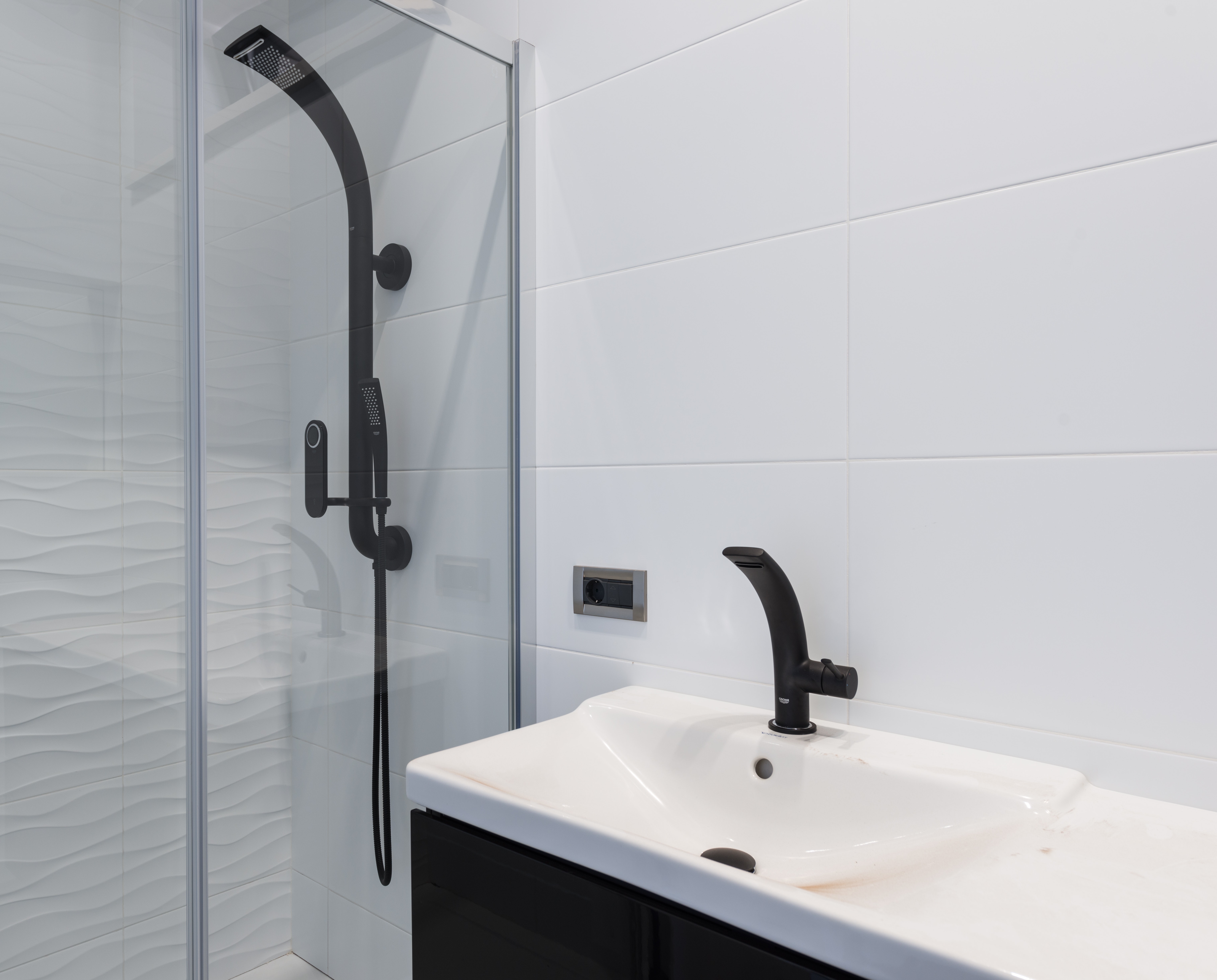
1. When you have limited time
In ancient times, a shower wouldn't have saved you much time, even if you were wealthy and had a servant to pour warm water over your head. Nowadays, showers are commonplace, and they're the best way to clean when you're in a rush. Around 68% of UK residents use a shower every day.
There's no need to wait for the bathtub to fill up in the morning before heading off to work. Showers are convenient and use less water. That said, the convenience of showers can increase the amount of water used overall, even though they consume less than half the water of a bath.
2. When you want to use less water
According to onaverage.co.uk, an average person uses 50 litres of water in a shower, while it takes 115 litres to fill up a bathtub. So, showering appears to be more sustainable on balance. However, this data can be misleading, as people tend to use the shower more frequently than the bath overall.
That said, you can cut down on your water usage by using a shower if you stay conscious of the number of showers you take, and the length of time spent under the water. Experts recommend a 4-minute shower, which uses 36 litres instead. You might also consider a modern shower system.
3. When you have mobility issues
Unless you have a walk-in bath or a standard bath with convenient bath grips , getting into a bath with mobility issues can be challenging. On the other hand, showers are simple to stand under, even when you require a shower chair or transfer bench, and can be used for frequent, everyday washing
If you have mobility issues or arthritis, a shower might be your only opportunity to bathe, giving it a clear advantage over a bath. That said, you might still require a bathtub or walk-in bath for convenient use. Wholesale Domestic offers a wide range of showers and shower baths.
4. When you want to save floor space
These days, there are plenty of options when it comes to installing a bath or shower. Even small bathrooms have convenient options like L-shaped baths, shower baths , and corner baths to save space and still deliver a luxury experience. However, shower enclosures remain the number one option.
If you want to save floor space in the bathroom, consider installing a shower enclosure . If you don't have a bathtub as well, you will miss out on the occasional warm soak. However, the upside is the additional space you have for more bathroom furniture , and the money and energy you save by showering.
Baths vs. showers: resounding results
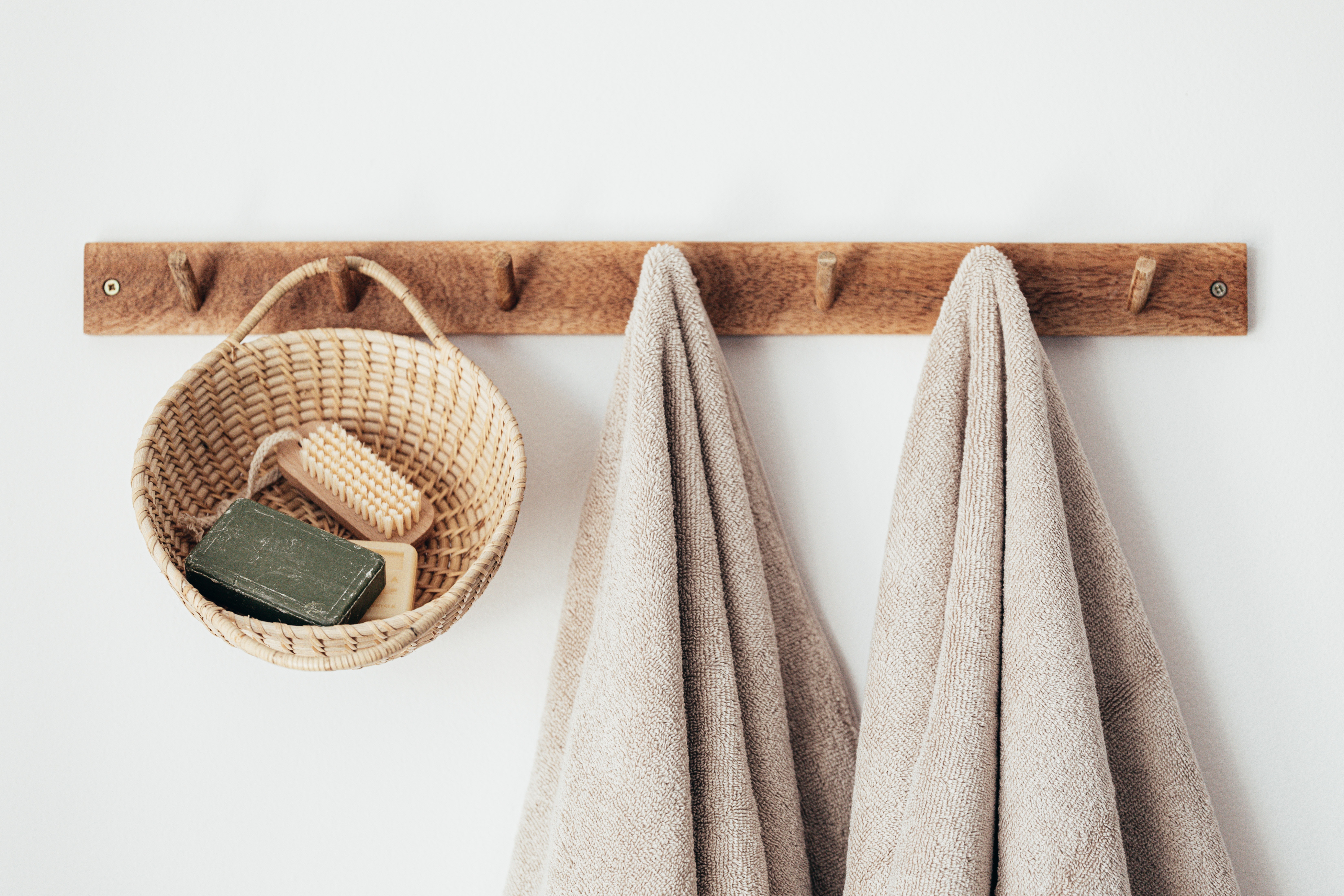
Do we have a winner? Are we ready to present the heavyweight belt to one or the other? The answer is, not quite. Baths and showers have gone the distance with each other over the years, but there is still no clear preference in most homes. People enjoy the qualities of both at different times in their lives: showers for convenient washing through the week and a luxurious bath on weekends.
If you're thinking about installing or upgrading the bath or shower in your home, there are plenty of options to choose from at Wholesale Domestic. We stock an excellent range of stylish baths and showers at unbeatable prices, and our bathroom experts are available to discuss delivery and installation. Make sure you have a dream bathroom for all your washing, relaxing, and de-stressing needs.
FAQs
1. Should I take a bath every day?
Taking a bath is so relaxing you might want one every day of the week but be careful; bathing dries out your skin causing damage and wrinkles. Limit your baths to between one and three at the very most every week to prevent dry skin and to prevent your muscles from becoming weak and atrophying.
2. How much water does a bath use?
The amount of water your bath uses depends on the size of your bathtub, but most people don’t fill their tub to capacity. On average, a bath uses between 80-100 litres of water, which is more than a shower.
3. How long should I stay in the bath?
The ideal time to spend in the bath is between 10-30 minutes. Health experts suggest that 10 minutes can improve cardiovascular health, but more than 30 minutes can start to affect the health of the body. If you spend more than 30 minutes in the bath, your skin gets crepey, and you may experience headaches.
4. How much water does a shower use?
When it comes to showers, water usage is calculated using the flow rate of the system, which differs in most homes. However, most showers use between 50-70 litres of water depending on the time.
5. How many days can I go without showering?
Shower regularity mostly depends on your lifestyle requirements. Active people and those working in smelly environments might need more than one shower a day, but office workers need far fewer. Most people take only one shower a day to save water and energy, but two is also quite common.

 FREE delivery over £500*
FREE delivery over £500* Visit our showrooms
Visit our showrooms Finance options available*
Finance options available* Apply for a Trade Account
Apply for a Trade Account